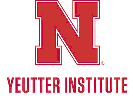Yeutter Institute of International Trade and Finance

Yeutter Institute Publications
Date of this Version
10-2023
Document Type
Article
Citation
Clayton Yeutter Institute of International Trade and Finance, The Future of U.S. Agricultural Biotechnology and Trade: Summary of a Roundtable Discussion. October 2023. Lincoln, Nebraska.
Abstract
The United States is one of the largest and highest-yield agricultural producers and exporters in the world. But the world’s population is growing, and growing conditions themselves are changing. Farms face shifting weather patterns, more frequent and severe storms, floods, and drought, and changing pest and disease pressures. What farmers plant and how they plant it are evolving to keep pace with these changes. Future global food security, sustainability, and U.S. leadership in agriculture will depend on the domestic and international policy and regulatory landscapes for agricultural biotechnology innovation. The Clayton Yeutter Institute of International Trade and Finance at the University of Nebraska-Lincoln convened a roundtable on March 2, 2023, conducted under the Chatham House Rule, to discuss the pressing issues around the future of U.S. agricultural biotechnology and trade. This was a unique opportunity to bring together expertise from the farm, the field, the lab, industry, and the policy arena. Participants included high-level government officials from the current and previous administrations, farmers, academics, and practitioners in plant genetics and agricultural sciences. This report summarizes that discussion. Points of widespread agreement among participants include:
1. Sustainability and food security require innovation. The world’s population continues to grow, growing conditions are changing, and our land and water resources are finite. We need to increase yield and there is no way to do this without innovation.
2. There are three agencies responsible for regulating genetically engineered (GE) crops in the United States—the U.S. Food and Drug Administration (FDA), U.S. Department of Agriculture (USDA), and the U.S. Environmental Protection Agency (EPA). (GE here includes both genetically modified and gene edited. We will use the broader term GE in this report.) Each agency has developed its own specific rules and regulations within the confines of the statutes, but different statutes govern each agency, which has resulted in “stovepipes that are crooked and turned in different buildings.” The U.S. regulatory regime for agricultural biotechnology needs to be streamlined, otherwise investors could go elsewhere like Brazil.
3. There is a fundamental misunderstanding in the United States about how our food is grown. Consumer labeling is helpful, but there is frustration that consumers are being oversold on the value of genetically modified organism (GMO)-free labels. The need for clear, science-based communication applies across the entire supply chain—farmers, processers, packagers, marketers, and grocers.
4. Transparency and science-based regulatory approaches by our trading partners are often as important as traditional market access. The World Trade Organization (WTO) Sanitary and Phytosanitary (SPS) Agreement has withstood the test of time, and the U.S. should work to defend it. SPS provisions are important because they incorporate the science and risk analysis provisions. The U.S.-Mexico-Canada Agreement (USMCA) was the first U.S. trade agreement to include agricultural biotechnology provisions, and that agreement and even the U.S.-China Phase One agreement are good examples of the way forward, although even stronger and bolder provisions could be sought in future agreements.
5. The importance of agricultural biotechnology innovation is not lost on China, and government leaders have a top-down plan to dominate in agricultural seeds and innovation. “Seeds are the ‘chip’ of agriculture,” said Han Wenxiu, deputy director of the Office of the Central Economics and Financial Affairs Commission, referring to semiconductors and the U.S.-China technology race.
Included in
International and Area Studies Commons, International Business Commons, International Relations Commons


Comments
Copyright © 2023 Clayton Yeutter Institute of International Trade and Finance